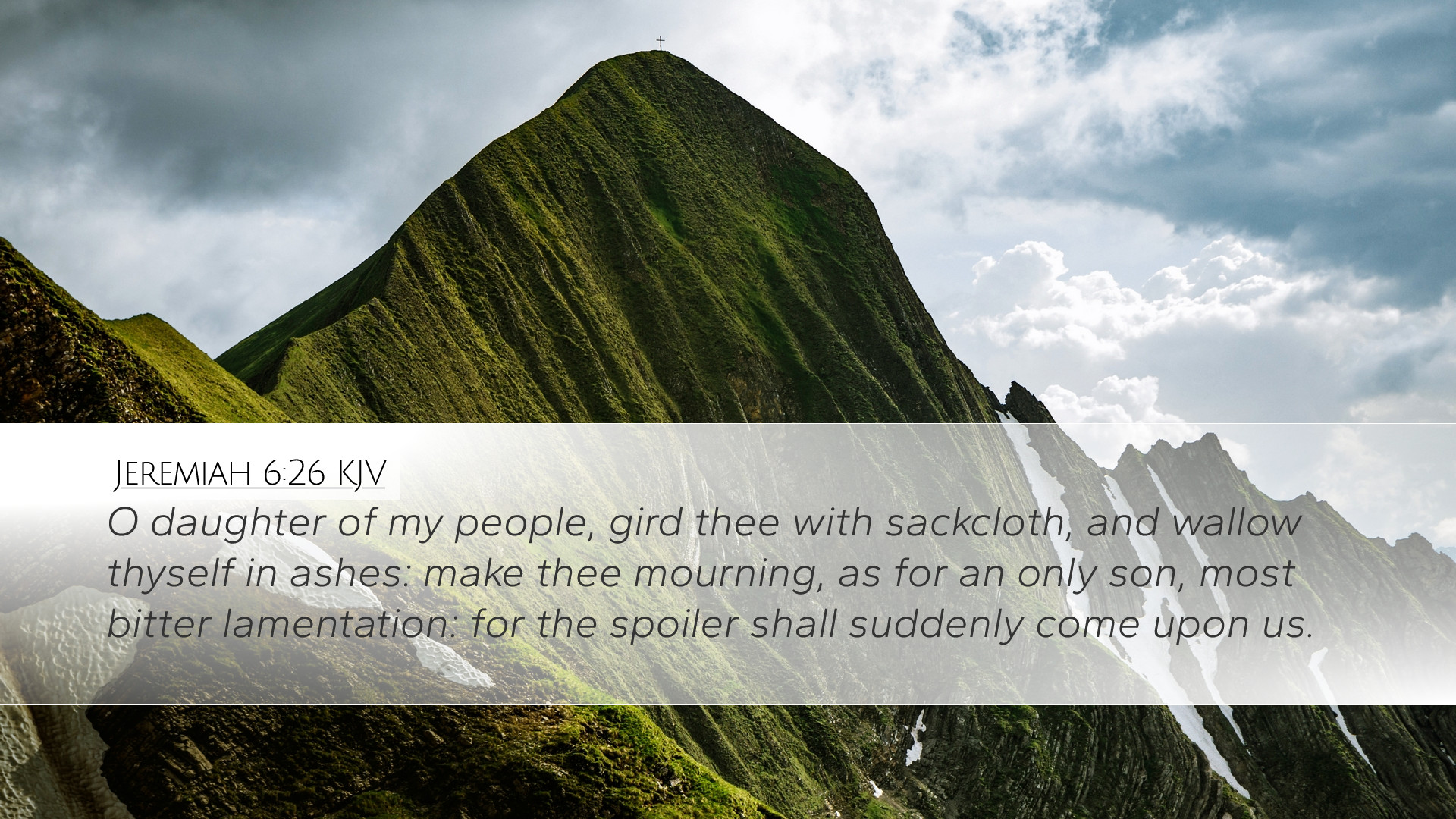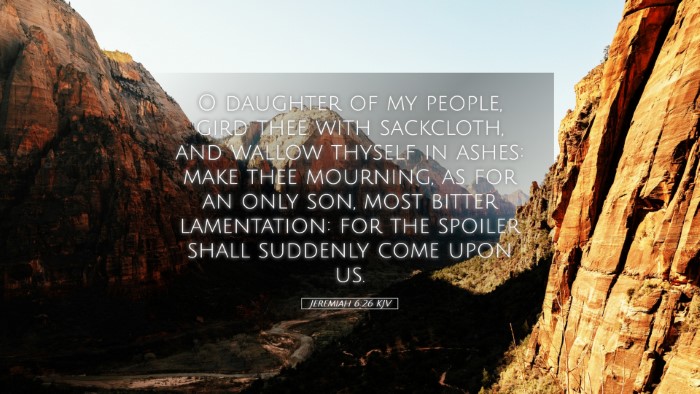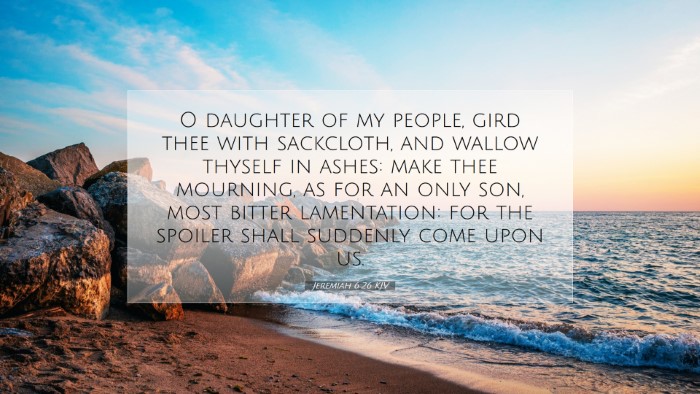Commentary on Jeremiah 6:26
Verse Reference: Jeremiah 6:26 (KJV) - "O daughter of my people, gird thee with sackcloth, and wallow thyself in ashes: make thee mourning, as for an only son, most bitter lamentation: for the spoiler shall suddenly come upon us."
Contextual Background
The Book of Jeremiah, a major prophetic text in the Old Testament, addresses the spiritual decline of Judah prior to its impending downfall. Jeremiah, known as the "weeping prophet," conveys God’s messages amidst a context of moral corruption, idolatry, and social injustice. This verse encapsulates a moment of divine warning and calls for repentance as judgment approaches.
Exegesis and Theological Insights
This passage is a poignant appeal to the people of Judah, urging them to recognize the seriousness of their situation. It uses vivid imagery and metaphors familiar in the cultural context, appealing particularly to their emotions and sense of loss.
Imagery of Mourning
Mourning and sackcloth:
- Sackcloth was a traditional garment of mourning, suggesting humility and repentance. Its use here indicates the gravity of the circumstances that necessitate a response.
- The ashes symbolize grief and are commonly associated with penitence and sorrow in the ancient Near Eastern context.
Personal Loss
The reference to mourning for an only son captures the depth of grief. In the ancient world, the loss of a single child, especially a firstborn, was particularly devastating.
- This appeal reflects God's concern for His people, reminding them of the affection and anguish He feels towards them, urging a profound realization of the consequences of their sinful ways.
Impending Judgment
The warning that the spoiler shall suddenly come upon us emphasizes the urgency of the situation. The Hebrew word used implies a thief or predator, suggesting the suddenness and severity of the coming destruction. It serves as a stark reminder that divine judgment is imminent and requires immediate action.
Commentary Insights
Matthew Henry
Henry emphasizes the weight of Jeremiah's lamentation, noting that the call to "gird thee with sackcloth" signifies a deep, personal recognition of one's sinfulness. He comments on how the call to collective mourning highlights the corporate responsibility of the people before God.
Albert Barnes
Barnes focuses on the emotive language of the verse. He suggests that the mourning akin to “as for an only son” illustrates the depth of the people’s need for a genuine and heartfelt return to God. Barnes also draws attention to the notion of calamity that is both unavoidable and swift, encouraging a reassessment of priorities and actions.
Adam Clarke
Clarke notes the metaphor of “wallow in ashes,” which not only signifies repentance but also an acknowledgment of one’s own mortality and the severity of God’s pending judgment. He stresses the personal nature of the plea, suggesting that individuals must internalize the communal crisis and its spiritual implications.
Applications for Modern Readers
As contemporary readers and leaders in faith communities reflect on this verse, several critical applications emerge:
- Call to Repentance: The urgency of personal and communal repentance remains relevant today, calling believers to assess their lives in light of God’s holiness.
- Awareness of Impending Judgment: Understanding that divine judgment is real and that life is fleeting encourages believers to live deliberately and faithfully.
- Emotional Resonance: The use of profound imagery evokes strong emotional responses, reminding believers of their need for God’s mercy in times of affliction.
Conclusion
Jeremiah 6:26 serves as a profound reminder of the nature of sin, the call for repentance, and the reality of divine judgment. The combined insights from noted commentaries deepen the understanding of this verse, urging all readers—whether pastors, students, or scholars—to embrace its spiritual significance. As the Church navigates modern challenges, the themes of mourning, accountability, and divine mercy resonate, providing a framework for faithful living in a world that often mirrors the moral decline observed in Jeremiah’s time.


